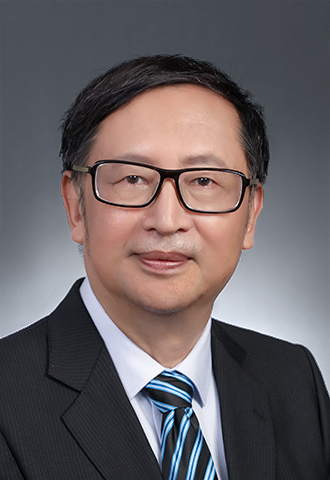-

- Yang Jiemian
- Senior Research Fellow
- Institute for Foreign Policy Studies
- Yang Jiemian: How to Look at and Deal with Security Issues in Eurasia
- Global Cultural Building in the New Context for a Community of Shared Future for the Mankind
- International landscape roiling with changes brought by pandemic
- There Will Be No New Cold War
- President Trump’s First 100 Days and the Asian Responses in Regional Security Order
- WHAT IF CLINTON WINS ——US President...
- How to Make a Truly Democratic and ...
- China can inject new dynamics into ...
- BRICS can lead Global South
- How G20 meeting could defuse world ...
- ‘Belt and Road’ initiative must wor...
- China’s Foreign Policy under Presid...
- China’s Foreign Policy under Presid...
- Criticism of CPEC is proof of progr...
- Can China help shape global governa...
- Fostering the cross-border infrastr...
- The Belt and Road Initiative and Th...
- Wuhan 2.0: a Chinese assessment
- The Establishment of the Informal M...
- Identifying and Addressing Major Is...
- “Polar Silk Road”and China-Nordic C...
- “Polar Silk Road”and China-Nordic C...
- Perspective from China’s Internatio...
- China’s Economic Initiatives in th...
- Commentary on The U. S. Arctic Coun...
- G20 Development Agenda and 2030 Age...
- BRI in Oman as an example: The Syn...
- The US Initiatives in Response to C...
- China-U.S. Collaboration --Four cas...
- Competition without Catastrophe : A...
- Lies and Truth About Data Security—...
- Addressing the Vaccine Gap: Goal-ba...
- The G20’s Sovereign Debt Agenda:Wha...
- The G20’s Sovereign Debt Agenda:Wha...
- Addressing the Vaccine Gap: Goal-ba...
Multilateralism has long been existing with international interaction. However, it is presently confronting with great challenges in conceptions, formations and actions.
First, the international community must strive for maximum agreement on multilateralism. Nowadays, most state actors and non-state actors alike believe that multilateralism enshrines the essences of democracy of international relations, respects the interests and rights of all the actors, and remains the most effective way to deal with global issues. However, not all the members of international community think this way, let alone act accordingly. To the Trump administration and the like, multilateralism is something that it could throw away at will.
Furthermore, the international community should realize that multilateralism is at a juncture from a mere way of multilateral dealings to a key norm that governs international interaction at this new era.
In terms of new connotation and function of multilateralism in making, the academic and political circles have different roles to play. It is the responsibilities of the academia including think tanks to conceptualize new multilateralism and find the way to translate it into reality. Therefore, the wisdom of the West and the rest should be pooled and mobilized to redefine multilateralism and make it a global consensus. In the past, the world academic circle stood the test of Trumpian unilateralism. At present and in the future, the academic circle should further promote inclusive multilateralism while criticizing pseudo multilateralism. Additionally, the academic circle should use their wildest possible imagination to design the relevant systems and institutions, the latter should be a mixture of both realistically feasible and ideally pursuable.
The political circle has multi-fold responsibilities to shoulder and roles to play. For the strategy-makers and policy-deciders, they need think and move beyond the immediate interests and considerations. Instead, they should use multilateralism guide their strategy and policy. For the functional level of practitioners, they should try their best to coordinate the government, business and the society while making sure that the implementation of the related strategies and policies are on the right track. Regarding the former practitioners, many of them have the advantages of both the governmental officials and the non-governmental ones. With the revolving door opportunities, they have a third advantage to switch between the governments and non-governments. They are expected to play a unique and effective role in the thinking and implementing multilateralism.
Source of documents:SIISS, May 13, 2021
